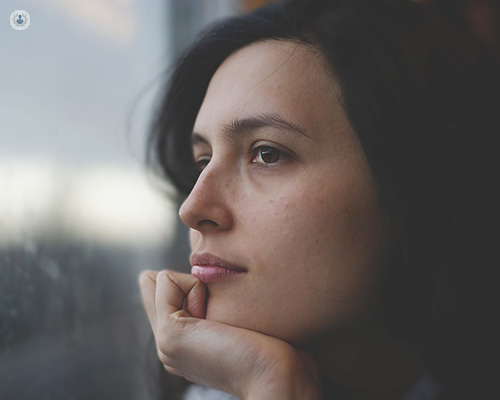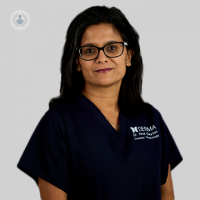Acne: a comprehensive guide
Escrito por:Acne is a common skin condition that affects people of all ages, and its causes are multifactorial. We speak to leading consultant dermatologist Dr Rima Clayton, who explores the condition, including the primary factors contributing to acne development, the various types of acne lesions and common misconceptions about acne.

What are the primary causes and contributing factors of acne, and how can patients effectively manage and prevent breakouts?
Acne arises from a combination of factors that interact with one another. Firstly, the activity of grease or sebaceous glands plays a crucial role. When these glands become overactive, they produce more sebum, leading to clogged pores.
Secondly, how many bacteria (c. acnes) that cause acne that are present on the skin is a contributing factor. Additionally, sensitivity to hormonal fluctuations, which are typically normal, can also influence acne outbreaks. Other individual-specific factors include diet, environmental influences, genetics, and certain medications.
What are the different types of acne lesions and how can they be identified and treated appropriately?
There are various types of acne lesions, the most common being whiteheads and blackheads. Whiteheads occur when hair follicles become clogged and remain closed to the skin surface. Conversely, blackheads are open to the skin surface, and their contents oxidize, giving them a black appearance.
If whiteheads become inflamed, they turn into papules, and when inflammation and pus increase, they become pustules. As these lesions combine and grow larger, they form nodules and cysts.
What are some of the common misconceptions about acne, and how can dermatologists educate patients to ensure they have accurate information?
One of the misconceptions about acne is that aggressively treating the skin with harsh products will help alleviate the condition. However, this can backfire, as the skin may respond by producing more sebum, worsening the acne. It is essential to treat the skin gently and avoid excessive use of scrubs and over-the-counter treatments.
Are there any lifestyle factors, such as diet or stress, that can influence acne development? How can patients modify these factors to improve their skin health?
Various lifestyle factors can influence the development of acne, such as diet and stress levels. Research suggests that consuming dairy products, processed foods, and refined sugars may exacerbate acne in some individuals. Additionally, stress can lead to hormonal imbalances that aggravate the skin and worsen acne.
What are the latest advancements in acne treatments, including topical and oral medications, laser therapies, and skincare routines? How do these interventions work, and what are their potential benefits and limitations?
There is a wide range of topical treatments available over the counter that can effectively manage acne. These include topical niacinamide, azelaic acid, and retinols. Maintaining a good skincare routine can also help prevent the need for prescribed medications in some cases.
For more severe acne cases, oral medications like antibiotics, spironolactone, and Isotretinoin may be prescribed by dermatologists. In recent times, a combination of red light and blue light Intense Pulsed light (a type of laser therapy) has shown promise in improving mild to moderate acne. However, this treatment option is not yet widely available.
A consultation with a dermatologist is essential to determine the best course of action, as individual factors and the severity of acne need to be considered when deciding on treatments. Dermatologists can provide comprehensive guidance on the risks and benefits of different treatments to tailor a suitable plan for each patient.
If you are suffering from acne and would like to book a consultation with Dr Clayton, do not hesitate to do so by visiting her Top Doctors profile today.


